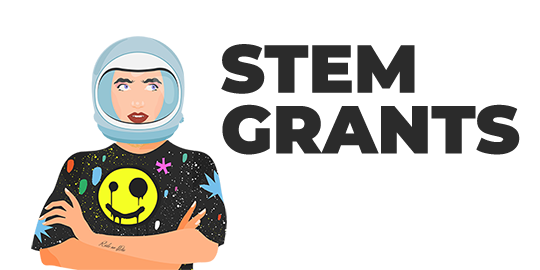NSF Discovery Research Grants – DUE: 11-14-18
NSF Advancing Informal STEM Learning – DUE: 11-7-18
September 2, 2018NSF STEM + Computing K-12 Education – DUE: Rolling
September 2, 2018The Discovery Research PreK-12 program (DRK-12) seeks to significantly enhance the learning and teaching of science, technology, engineering, mathematics and computer science (STEM) by preK-12 students and teachers, through research and development of STEM education innovations and approaches. Projects in the DRK-12 program build on fundamental research in STEM education and prior research and development efforts that provide theoretical and empirical justification for proposed projects. Projects should result in research-informed and field-tested outcomes and products that inform teaching and learning. Teachers and students who participate in DRK-12 studies are expected to enhance their understanding and use of STEM content, practices and skills.
The DRK-12 program invites proposals that address immediate challenges that are facing preK-12 STEM education as well as those that anticipate radically different structures and functions of preK-12 teaching and learning. The DRK-12 program has three major research and development strands: (1) Assessment; (2) Learning; and (3) Teaching. The program recognizes the synergy among the three strands and that there is some overlap and interdependence among them. However, proposals should identify a clear focus of the proposed research efforts (i.e., assessment, learning, or teaching) consistent with the proposal’s main objectives and research questions. The program supports six types of projects: (1) Exploratory, (2) Design and Development, (3) Impact, (4) Implementation and Improvement, (5) Syntheses, and (6) Conferences. All six types of projects apply to each of the three DRK-12 program strands.
Award Information
Anticipated Type of Award: Standard Grant or Continuing Grant
Estimated Number of Awards: 20 to 31
It is anticipated that about 8-13 Level I awards, 5-8 Level II awards, 1-4 Level III awards, and 5 Conference/Synthesis awards will be made in FY 2018, pending availability of funds. One Resource Center with a budget of up to $3,500,000 will be supported for a duration of 3 years in the 2018 fiscal year.
Anticipated Funding Amount: $57,000,000
Pending availability of funds, NSF anticipates approximately $57,000,000 will be available for the FY2018 competition.
Normal limits for funding requests of DRK -12 proposals are as follows: (1) Level I projects up to $450,000 with duration up to three years; (2) Level II projects up to $3,000,000 with duration up to four years; and (3) Level III projects up to $5,000,000 with duration up to five years. Synthesis proposals are up to $300,000 and two years duration. Conference proposals are up to $100,000 and one year duration. The level of funding for the proposal should align with the maturity of the proposed work, the size and scope of the empirical effort, as well as the capacity of the interdisciplinary team to conduct the proposed research.
Eligibility Information
Who May Submit Proposals:
The categories of proposers eligible to submit proposals to the National Science Foundation are identified in the NSF Proposal & Award Policies & Procedures Guide(PAPPG), Chapter I.E.
Who May Serve as PI:
There are no restrictions or limits.
Limit on Number of Proposals per Organization:
There are no restrictions or limits.
Limit on Number of Proposals per PI or Co-PI:
There are no restrictions or limits.
